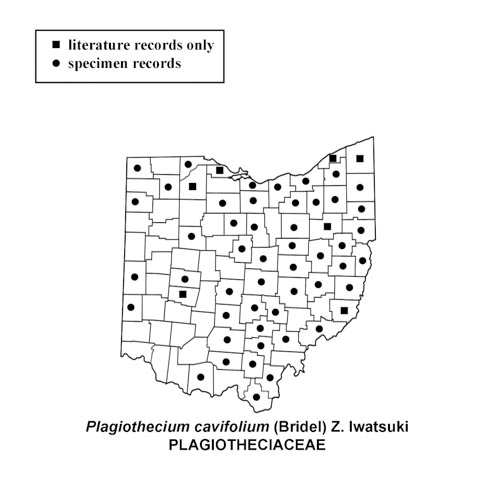Plagiothecium cavifolium
“round silk moss”
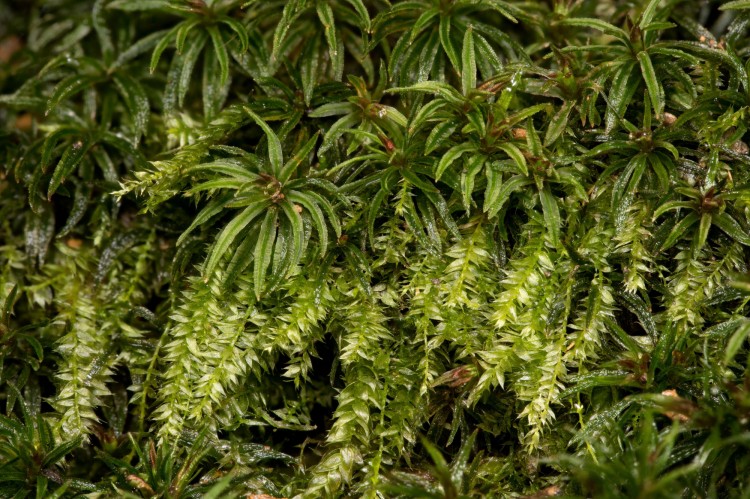
Plagiothecium cavifolium (with Atrichum angustatum) on shady shale streambank.
Delaware, Ohio. November 27, 2014.
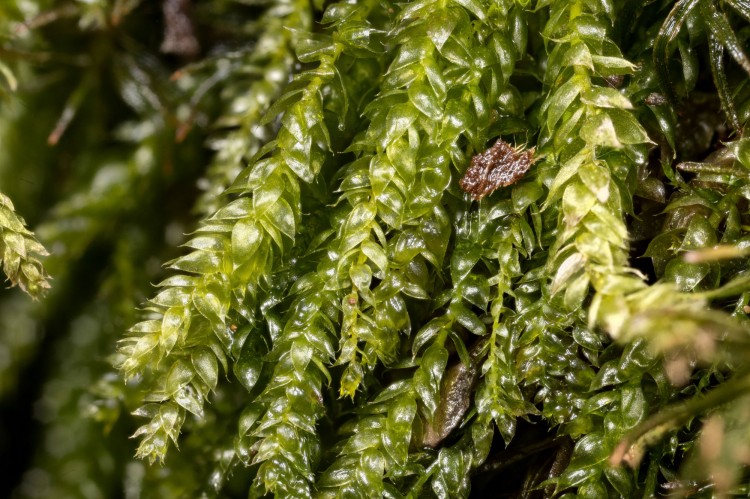
Plagiothecium cavifolium on shady shale streambank. Delaware, Ohio. November 27, 2014.
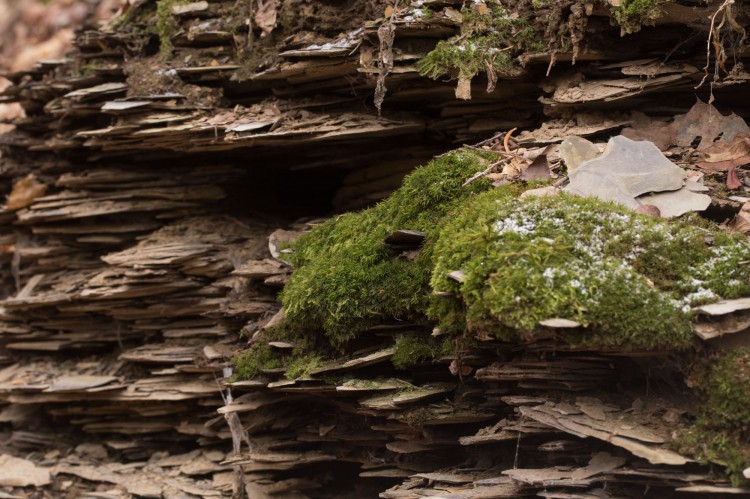
Plagiothecium cavifolium and Atrichum angustatum on shady shale streambank.
Delaware, Ohio. November 27, 2014.
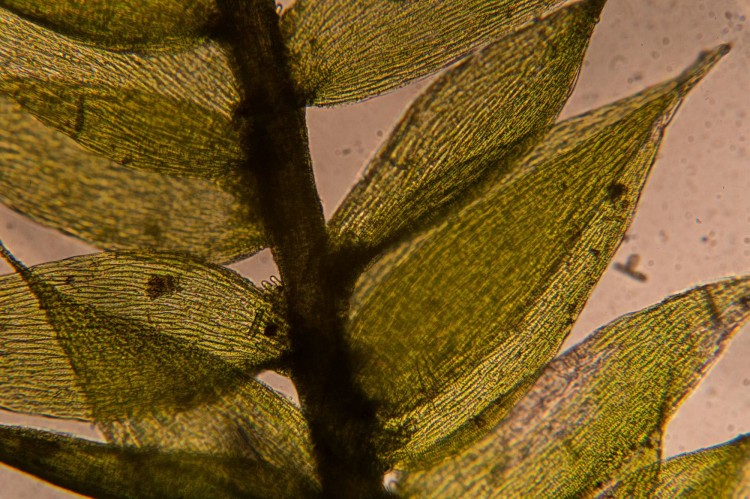
Plagiothecium cavifolium stem with leaves. Note axillary brood bodies.
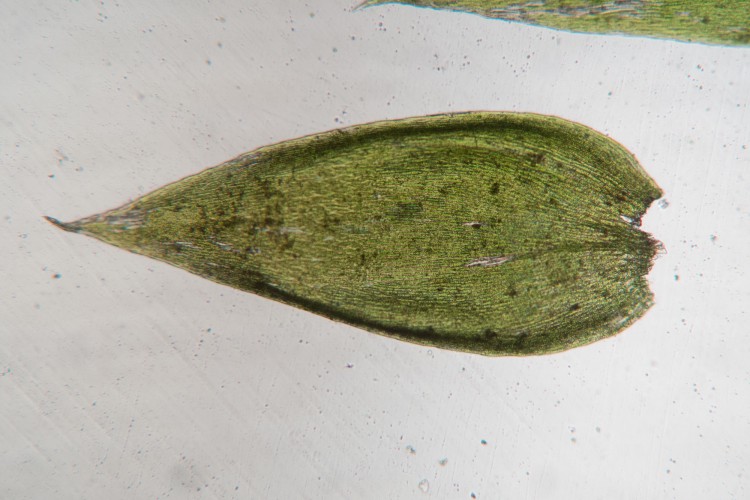
Plagiothecium cavifolium leaf. Note symmetrical outline.
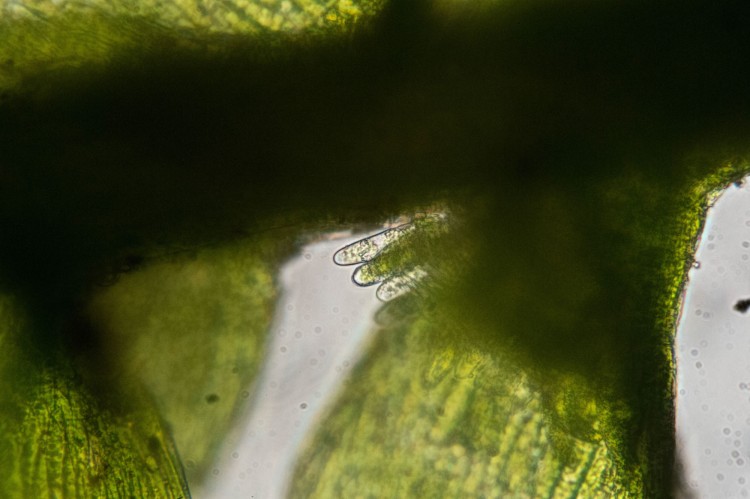
Plagiothecium cavifolium axillary brood bodies.
How to recognize Plagiothecium cavifolium: This moss may appear either julaceous (worm-like) or complanate (flattened). The leaves are concave and symmetric 1-2.5 mm long and ovate to ovate-oblong. Unless you are very familiar with the appearance, the compound microscope will be needed to check the identification. All the Plagiothecium mosses have a forked costa or double costa which may be short or extend to mid-leaf with one side of the fork longer than the other, and leaf decurrencies extending below the leaf on the stem. These decurrencies may be seen either on the leaf base of stripped off leaves or still clinging to the stem on a whole stem mount after most of the leaves have been removed. Clusters of brood-bodies are sometimes found in leaf axils; these are short cylindrical uniseriate branched structures. These often appear in all Ohio species of Plagiothecium.
Where to find Plagiothecium cavifolium: This medium sized moss is found on soil and humus on rocks, stream banks or other damp places, in shady areas.
